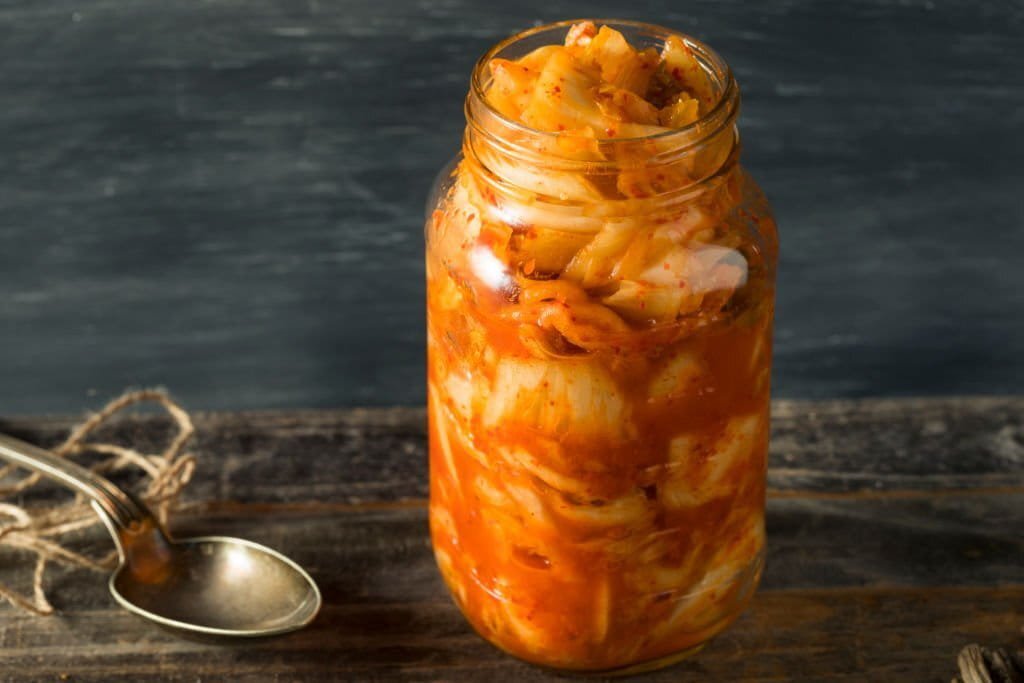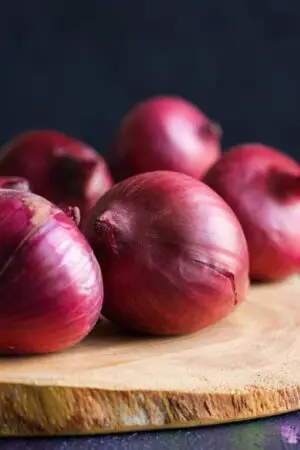Looking to spice up your recipes with the best kimchi juice substitute?
If so, then look no further!
Whether you’re a kimchi enthusiast in need of a backup plan, or you’re simply curious about alternative options and flavors, we’ve got you covered.

In today’s post, we’ll explore good substitutes for kimchi juice – from rice vinegar to pickle juice and so much more! Get ready for a tantalizing journey as we explore innovative ingredients that bring the same tangy, umami-rich kick to your dishes.
Let’s dive in!
What’s The Best Kimchi Juice Substitute?
Kimchi, a precious Korean staple, is renowned for its vibrant flavors and health benefits. But what if you find yourself without kimchi juice? Thankfully, there is no need to run to the store to pick yourself up some kimchi juice – you may have some ingredients in your pantry that can do the trick just as well. In this section, we’ll explore the best kimchi juice substitutes that will infuse your dishes with the same tangy, umami-rich goodness.
Whether you’re a vegetarian, have dietary restrictions, or simply want to experiment with different flavors, these alternatives will broaden your culinary horizons and leave your taste buds satisfied.
1. Rice Vinegar
Rice vinegar, with its mild acidity and delicate flavor, is an excellent replacement for kimchi juice. Its subtle tang will add depth to your dishes without overpowering the other ingredients.
Here are a few reasons why rice vinegar works well:
- Rice vinegar shares a similar tangy taste to kimchi juice, making it an ideal substitute. It adds a pleasant acidity to dishes without overpowering other flavors, allowing for a balanced and nuanced taste.
- It also features a gentle aroma that won’t overpower the fragrance of other ingredients in your dish. Moreover, it enhances the overall flavor profile without dominating the senses.
- Rice vinegar is a versatile ingredient that complements a wide range of dishes. It works well in dressings, marinades, sauces, and even as a pickling liquid, offering a variety of culinary applications.
- You should easily find rice vinegar in most grocery stores such as the Kikoman rice vinegar, making it a convenient choice for those seeking a kimchi juice substitute. It’s accessible and often found in the Asian food section or vinegar aisle.

- Unlike some stronger vinegars, rice vinegar is light and refreshing, making it suitable for recipes that require a more subtle flavor. It provides a pleasant zing without overpowering the dish’s overall taste.
- Plus, rice vinegar has a pale color that ensures it won’t dramatically alter the appearance of your dishes, allowing the vibrant colors of other ingredients to shine through.
When using rice vinegar as a kimchi juice substitute, you need to dilute it with water and add a pinch of salt to achieve a taste similar to kimchi juice. This way, you can enjoy the tangy essence that kimchi juice brings to your recipes without compromising on flavor.
2. Pickle Juice
If you have some leftover pickle juice in your fridge, don’t discard it! Pickle juice works surprisingly well as a kimchi juice substitute. The briny and acidic nature of pickle juice complements a wide range of dishes. Use it in marinades, dressings, or as a flavorful base for soups and stews.
The following are some reasons why pickle juice is an excellent kimchi juice substitute to consider:
- Just like kimchi juice, pickle juice is tangy and acidic. It offers a similar zesty flavor that can provide that distinctive tang that kimchi brings.
- Pickle juice is packed with briny flavors from the pickling process. This adds a unique depth and complexity to your recipes, reminiscent of the fermented flavors found in kimchi.
- Pickle juice can be used in a variety of recipes, including dressings, marinades, and even as a base for soups and stews. It is a versatile ingredient, so you can easily explore or even experiment various recipes using pickle juice.
- Additionally, pickle juice is often readily available in households that enjoy pickles. Instead of discarding the juice once the pickles are gone, repurpose it as a kimchi juice substitute to minimize waste and maximize flavor.
- Lastly, using pickle juice as a substitute is cost-effective, as it provides a flavorful alternative without the need to purchase additional ingredients. It’s a budget-friendly option that can still deliver delicious results.
When using pickle juice as a kimchi juice substitute, keep in mind the saltiness level and adjust your recipe accordingly. Depending on the pickle juice’s strength and your personal preference, you may need to reduce or adjust the amount of salt in your recipe to maintain a balanced flavor profile.
3. Fermented Sauerkraut Juice
This is a byproduct of the cabbage fermentation process, and it shares some similarities with kimchi juice. Its tangy and slightly sour profile makes it an excellent substitute for enhancing the flavors of various recipes.

It makes a wonderful kimchi juice substitute because of these unique features:
- Both sauerkraut and kimchi undergo a fermentation process, resulting in a tangy and slightly sour flavor profile. Fermented sauerkraut juice captures this essence, making it an excellent alternative to kimchi juice.
- Fermented sauerkraut juice offers a tangy and umami-rich taste that can enhance the flavor of various dishes. Its acidity brings a pleasant zing, while the umami notes contribute depth and complexity.
- Like kimchi juice, fermented sauerkraut juice retains beneficial probiotics and enzymes from the fermentation process. These can support gut health and digestion, offering additional nutritional value to your recipes.
- Sauerkraut juice shares some flavor characteristics with kimchi juice, such as a slight tang and cabbage undertones. This makes it a compatible substitute that can harmonize well with other ingredients, allowing you to achieve a similar taste profile to kimchi-infused dishes.
When using fermented sauerkraut juice as a kimchi juice substitute, consider the salt content and adjust the seasoning in your recipe accordingly. Sauerkraut juice tends to have a saltier taste, so it’s important to adjust the overall salt levels to maintain a balanced flavor.
4. Miso Paste
Miso paste, made from fermented soybeans, is a versatile ingredient that can be used as a kimchi juice alternative. Its rich umami flavor lends depth and complexity to dishes.
You can easily use it as a kimchi juice substitute because of these reasons:
- Miso paste is known for its rich, savory umami taste. Similarly, kimchi juice contributes umami notes to dishes. By using miso paste, you can add depth and complexity to your recipes, replicating the umami richness found in kimchi.
- Both miso paste and kimchi involve fermentation processes, resulting in unique and complex flavors. Miso paste undergoes fermentation, which develops its distinctive taste. This shared fermentation aspect makes miso paste a suitable substitute for kimchi juice.
- Miso paste brings a deep, earthy flavor that can balance and elevate other ingredients in your dish. It adds a layer of complexity and richness, similar to the impact of kimchi juice. Adjusting the amount of miso paste used allows you to control the desired level of flavor intensity.
- Furthermore, miso paste contains essential nutrients and beneficial enzymes derived from the fermentation process. It offers protein, vitamins, and minerals, making it a healthy alternative to kimchi juice while still providing nutritional benefits.
When using miso paste as a kimchi juice substitute, dilute it with water or vegetable broth to achieve a similar consistency to kimchi juice. Start with a small amount and adjust according to taste preferences, as miso paste can vary in saltiness depending on the type and brand.
Read this post: Ponzu Sauce Substitute You Can Use For Your Recipes
Other Possible Kimchi Juice Substitutes
Aside from those 4 most popular kimchi juice alternatives, here are a few more options to keep in mind. They do not quite capture the same essence of kimchi juice as the 4 ingredients we mentioned above, but they most definitely can do the job.
1. Citrus Juices
Citrus juices like lemon, lime, and orange can provide a tangy kick to your recipes, serving as an alternative to kimchi juice. Experiment with different citrus fruits to find the right balance for your dish. Remember to adjust the other flavors accordingly to maintain the desired taste.
2. Fish Sauce
While not suitable for vegetarians or those with dietary restrictions, fish sauce can offer a savory and umami-packed substitute for kimchi juice. Its intense flavor can be used sparingly to add depth to dressings, stir-fries, and sauces. Start with a small amount and adjust to taste, as fish sauce can be overpowering if used excessively.
Wrap Up
Although kimchi juice adds a unique flavor to dishes, there are various alternatives that can replicate its tangy and umami-rich qualities. From rice vinegar and pickle juice to fermented sauerkraut juice and miso paste, each substitute offers its own distinct taste and versatility.
Experimentation is key to finding the perfect replacement for your specific dish. So, don’t hesitate to explore these alternatives and elevate your culinary creations with exciting flavors. Whether you’re seeking vegetarian options or looking to diversify your taste experiences, these kimchi juice substitutes will ensure your dishes remain vibrant and packed with deliciousness.






